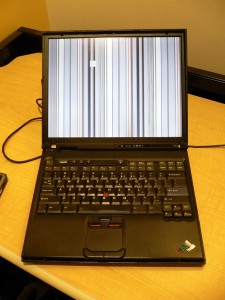Like many other small and medium size businesses, condominium associations have to have some sort of information technology infrastructure to manage and maintain their property. There are many different options for property management software out there, but today we’ll focus on a few key steps your organization can take to unify, simplify, and protect your IT infrastructure. Years ago most organizations were looking at mostly paper documentation and record keeping, with an odd laptop or desktop kicking around for printing or email. Now with the prevalence of cloud based services and associated integration methods, it might be time your organization took IT seriously in 2013.
- Backup your data. It can not be stated enough. Every organization, big and small, needs at least some semblance of a regular, scheduled, backup strategy. It could be as simple as signing up for a Box.com account, which offers Dropbox simplicity with encrypted file storage and unified administration from virtually any device. Another easy option is to purchase an external hard drive from any electronics store and doing regular backups with the software built into most reasonably modern computers. These stores are vital for disaster recovery, such as cases where a computer crashes or records are damaged in extreme weather. By having a second, off site copy, your association can reduce its liability for loosing critical documents, like founding and guiding paperwork, contracts, financial records, and meeting minutes.
- Embrace BYOD. By embracing bring-your-own-device (BYOD), associations can minimize hardware expenditures by utilizing devices trustees already own, whether that is a laptop or an iPad. Using these in conjunction with cloud based software makes the most sense, especially when it comes to document management and reporting.
- Associate with your association. There are dozens of pre-fab portals and communities that your association can take advantage of to connect and converse with your neighbors in a constructive manner. While they can’t be used for all communication (some statues require residents be notified in writing) they can help foster a sense of community in between quarterly socials. If you’re not feeling up to tacking community management, at least create a Facebook Group that you can brand & moderate, with some incentives to get residents to join in and contribute.
- Invest in documentation. If you’re not willing to completely overhaul your IT infrastructure, that’s ok. But at least make sure that there is ample & accurate documentation of proprietary systems, credentials, and contractors or professionals you can call if you’re stuck without access to the previous president’s email.

